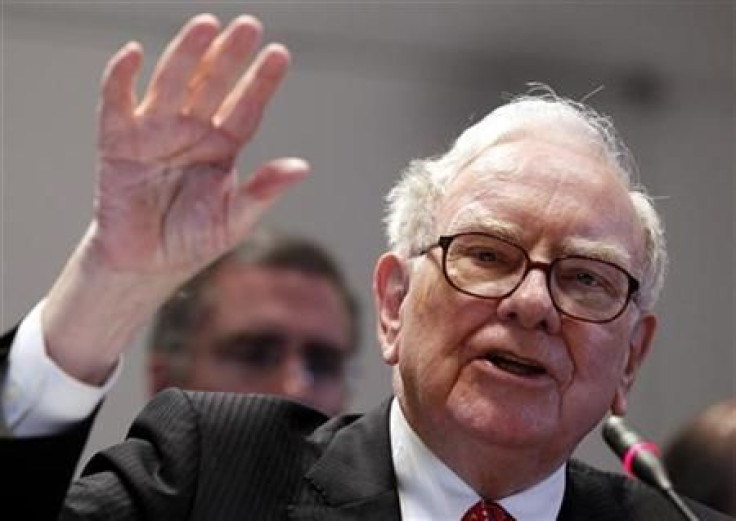Warren Buffett's secrets revealed : Buffett & Clark

Mary Buffett, the former daughter-in-law of billionaire investor Warren Buffett, and David Clark, one of the earliest 'Buffettologists', say they revealed Mr. Buffett's investment secrets in their recently published book Warren Buffett and the Art of Stock Arbitrage.
The billionaire Omaha investor returned about 39 percent annually from 1980 and 2003, which is an astounding investment feat.
However, these numbers look shabby compared to the 81 percent annual returns he achieved with the 59 stock arbitrage deals he did between 1980 and 2003.
Clark and Mary Buffett claims this is the secret to Buffett's success.
Stock arbitrage, also known as merger arbitrage, involves buying the shares of companies that are expected to be acquired by another company.
Usually, after an acquisition is announced, the price of the stock jumps close to the acquirer's proposed purchase price. Stock arbitrage, then, is buying those shares and gaining from the eventual convergence to the exact announced purchase price.
The downside risk, of course, is if the deal doesn't go through and the prices drop all the way back to pre-merger announcement levels.
For this reason, investors must be very choosy when doing these deals, said Mary Buffett, in a phone interview with IBTimes. Warren Buffett was certainly choosy; all 59 of his stock arbitrage deals went through.
Mary Buffett said the billionaire investor forgoes the greater returns of buying early in the speculative phase of the potential merger. Instead, he waits until the deal is certain to happen before he acts.
Buffett and Clark list the following as the characteristics of the deals that are likely to go through:
*The takeover must be friendly and no large shareholder should oppose it.
*The acquisition should be made for strategic rather than financial reasons, i.e. a company buying another one because there is synergy rather than a private equity firm buying a company it thinks is undervalued.
*There may also be regulatory considerations. For example, if the two companies together control a large enough portion of a certain market, regulators may oppose the deal on anti-trust basis.
Buffett and Clark insist stock arbitrage is a good strategy for retail investors. Years ago, it was impractical because of the high trading costs involved. Now, with the advent of electronic trading and lower commissions, it's more feasible.
Moreover, to follow the mergers market, one just needs to pay attention to general financial news. There are also a number of websites that specifically track mergers, so keeping abreast of this market is easier now than ever, said Mary Buffett.
Also, mergers still happen in recessionary times. For example, Warren Buffett's Berkshire Hathaway (NYSE: BRK.A) bought Burlington Northern in late 2009.
However, it is not possible for retail investors to achieve Buffett's 81 percent annual returns because they typically can only leverage two times for stock purchases.
Warren Buffett returned 81 percent annually by doing about 2.5 deals per year. Assuming each deal returned on average three percent, his leverage was at least nine times.
Still, with just two times leverage, investors can make some pretty decent returns.
Assuming Buffett's figure of 2.5 deals per year, with a 3 percent return per deal, and two-times leverage, the expected return would be about 15 percent per year.
Assuming (optimistically) investors do four deals per year (each deal takes several months to finish), leverage two-times, and capture three percent per deal, they would return 24 percent, or about twice the historic return of the U.S. stock market and trumping the performance of most fund managers.
Not a bad deal, especially for retail investors.
Incidentally, billionaire hedge fund manager John Paulson and many of the big guys out of Goldman Sachs (according to David Clark) started their career in stock arbitrage.
To read more Global Markets interviews, click here
Email Hao Li at hao.li@ibtimes.com
Click here to follow the IBTIMES Global Markets page on Facebook.
Click here to read recent articles by Hao Li.
© Copyright IBTimes 2024. All rights reserved.











